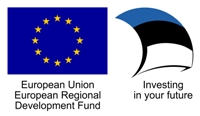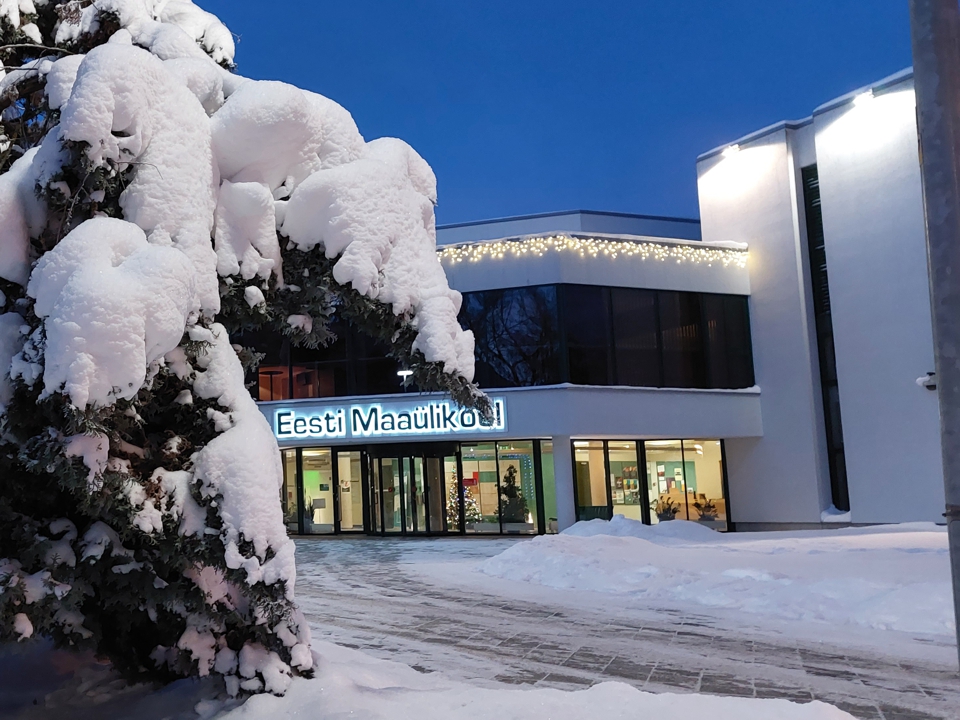XIX Baltic Animal Breeding Conference
December 14-15, 2022, Tartu, Estonia

December 14-15, 2022, Tartu, Estonia

Dear colleagues,
On behalf of the Organizing Committee, I am pleased to invite you to attend the XIX Baltic Animal Breeding Conference that will be held in Tartu, Estonia, at the Estonian University of Life Sciences from December 14-15, 2022.
The recent pandemic showed us that our sector never stops, that animal production continues to produce food for us and that we are an essential part of society. In 2022 we will surely be under the economic and societal consequences of this pandemic and the changed situation in the world.
The Baltic Animal Breeding Conference, which is taking place over the years, will give us an opportunity to exchange information, and new ideas and will encourage the development of further fruitful collaboration and networking. The conference is planned in a traditional way – a plenary session in the morning and the species sessions in the afternoon on December 14th, followed by a technical tour on December 15th.
The programme will cover various areas of animal production and the topics will be filled with innovation and recent scientific results in animal production.
As a community, we must make up for the lost opportunities for face-to-face networking.
We look forward to your confirmed presence at the conference.
Prof Haldja Viinalass
Chair of Organizing Committee
The official language of the conference is English.
Estonian University of Life Sciences, Fr.R.Kreutzwaldi 1a, Tartu
| 9.00-10.00 | Registration /Welcome coffee | |
| 10.00-10.15 | Mait Klaassen (EE) | Opening. Estonian University of Life Sciences |
| 10.15-10.35 | Gita Jansone (LV) | Agriculture in Latvia |
| 10.35-10.55 | Haldja Viinalass (EE) | Agriculture and Livestock Sectors in Estonia |
| 10.55-11.15 | Liga Paura (LV) | Inbreeding evaluation in Latvian local breeds |
| 11.15-11.35 | Ruta Šveistienė (LT) | Animal genetic studies in Lithuania and their impact on the breeding programs |
| 11.35-12.05 | Coffee break/ Poster session | |
| 12.05-12.35 | Marija Špehar (HR) | Opportunities of implementing the genomic selection in small populations - the Croatian case |
| 12.35-12.55 | Tõnu Põlluäär (EE) | Description of the Estonian dairy herd based on genomic breeding values |
| 12.55-13.15 | Šarūnė Marasinskiene (LT) | Herd management perspectives of Lithuania dairy cattle breeds |
| 13.15-14.00 | Lunch break | |
| 14.00-14.25 | Andres Valdmann (EE) | The charm and pain of high milk yield and large farms |
| 14.25-14.45 | Elina Mark (EE) | Advanced reproductive biotechnologies in animal breeding |
| 14.45-15.00 | Inga Merkelyte (LT) | Management of cattle reproduction process by using digitized analysis systems for animal physiological parameters |
| 15.00-15.15 | Anni Enn (EE) | Work accidents in Estonian agriculture |
| 15.15-15.40 | Coffee break/ Poster session | |
| 15:40-15:55 | Ilva Trapina (LV) | The difference of Latvian breed rams in terms of feed efficiency as opportunity for genomic selection |
| 15.55-16.10 | Evaldas Šlyžius (LT) | Influence of genotypic factors on the Lithuanian dairy goat population |
| 16.10-16.25 | Ragnar Leming (EE) | The effect of feeding black soldier fly larvae in a low protein diet for growing pigs |
| 16.25-16.40 | Erkki Sild (EE) | Differences in inbreeding in Estonian horse breeds revealed by genomic analysis |
| 16.40-16.55 | Alma Račkauskaitė (LT) | Genetic variability of Lithuanian sport horse populations assessed by pedigree analysis |
| 16:55-17.10 | Merko Vaga (EE) | Farm specific effects on twinning in Estonian dairy cattle |
| Closing | ||
| 19.00-22.00 | Wrap-up the sessions and discussion. Dinner. Workshop Tartu Loodusmaja/ Tartu Nature House, Lille 10, Tartu |
|
| D. Jonkus, L. Cielava, D. Ruska | The 100 years with Latvian Brown local origin dairy cow |
| D. Kairiša, I. Vircava, A. Valdovska, S. Meškis, L. Proškina, N. Bergmanis, U. Veide | Feeding dietary supplements of sapropel and its sodium humate to heifers of the Holstein black-spotted breed |
| L. Lutter, E. Songisepp, H. Viinalass | Using non-traditional starter cultures to valorize the milk of local breed cattle through the creation of innovative dairy products |
| A. Nolberga-Trūpa, D. Ruska, G. Grandbergs | The effect of potassium humate on productivity and milk quality of dairy cows |
| I. Sematovica, I. Kanska | Cow oocyte quality in relation to milk SCC and the way of obtaining them |
| I. Muižniece, D. Kairiša | Carcass quality of beef breed cattle and their crossbreeds slaughtered in Latvia |
| D. Kairiša, D. Gudrā, M. Ustīnova, I. Kalniņa, D. Gāliņa, D. Jonkus, A. Šneidere, D. Fridmanis, A. Valdovska | Genetic relatedness of Latvian Darkhead breed sheep and analysis of milk |
| V. Nikonova, D. Jonkus, L. Paura | Analysis of inbreeding and effective population size of Latvian heavy warmblood horses |
| D. Barzdina, L. Proskina | Effect of sodium humate on the growth performance and carcass quality of broiler chickens |
| F. Carnovale, H. Viinalass, D. Arney | Sustainable adaptation of Estonian livestock production to climate change |
| D. Ruska, D. Jonkus, D. Kairiša, L. Paura, L. Degola, A. Nolberga-Trūpa, E. Aplociņa, D. Bārzdiņa, I. Muižniece, L. Cielava, I. Eihvalde, V. Nikonova, I. Kļaviņa-Blekte | Importance of breeding data in estimation of emission from livestock |
Technical tour. Departure at 9:00 from Fr. Kreutzwaldi 1a (EMÜ main building)
Important Note: We advise you to wear comfortable clothes and shoes.

Estonian University of Life Sciences ASTRA project
„Value-chain based bio-economy 2“

Assembly Hall of the Estonian University of Life Sciences (Eesti Maaülikool, EMÜ)
Fr.R.Kreutzwaldi 1a
We suggest using the Sports Club or Skate Park parking lot as there are limited free parking places in front of the main building. Please look map for the parking lots.
Campus of the EMÜ

Accommodation should be booked by participants.
List of the hotels in the Tartu https://visittartu.com/stay
Official tourism site of Tartu and Tartu County https://visittartu.com/


All authors wishing to make an oral or poster presentation at the 19th Baltic Animal Breeding Conference are required to submit the title and abstract of their presentations in Englist to .
Only abstracts submitted will be considered for publication. Abstracts must not exceed 2,200 keystrokes, including title, authors and addresses, acknowledgements and funding statements, and including spaces and punctuation. The title of your abstract can take up to 100 keystrokes, including spaces.
Please make sure that you indicate the presenting author very carefully (with an asterisk).
Abstract submission is open until December 9, 2022. Thereafter, the abstracts will be reviewed by the organisers. The authors will be notified about their acceptance by late December 12, 2022.
Please note that the session and form of presentation (oral/poster) of submitted contributions may be changed, following the decision of the Conference Organising Committee.
The poster dimension must be W1200 x H900 mm.

Haldja Viinalass – Chair professor, Chair of Animal Breeding and Biotechnology, Institute of Veterinary Medicine and Animal Sciences of Estonian University of Life Sciences
Toomas Tiirats – Director of Institute of Veterinary Medicine and Animal Sciences of Estonian University of Life Sciences
Tanel Kaart – Professor, Institute of Veterinary Medicine and Animal Sciences of Estonian University of Life Sciences
Alo Tänavots – Senior Lecturer, Institute of Veterinary Medicine and Animal Sciences of Estonian University of Life Sciences
Merko Vaga – Researcher–postdoctoral fellow, Institute of Veterinary Medicine and Animal Sciences of Estonian University of Life Sciences
Haldja Viinalass – Chair professor, Chair of Animal Breeding and Biotechnology, Institute of Veterinary Medicine and Animal Sciences of Estonian University of Life Sciences
Rasa Nainienė – PhD, Animal Science Institute of Lithuanian University of Health Sciences
Rūta Šveistienė – PhD, Animal Science Institute of Lithuanian University of Health Sciences
Diāna Ruska – PhD, Latvia University of Life Sciences and Technologies
Līga Paura – PhD, Latvia University of Life Sciences and Technologies
Tanel Kaart – PhD, Estonian University of Life Sciences